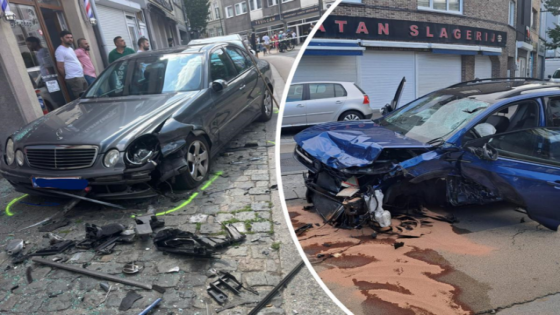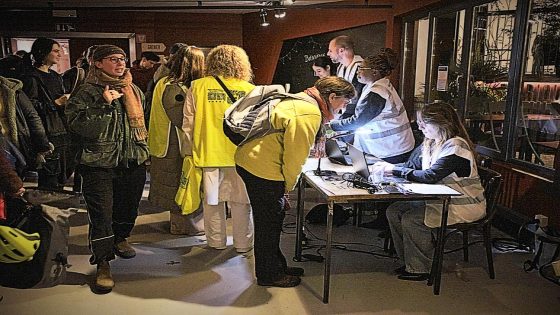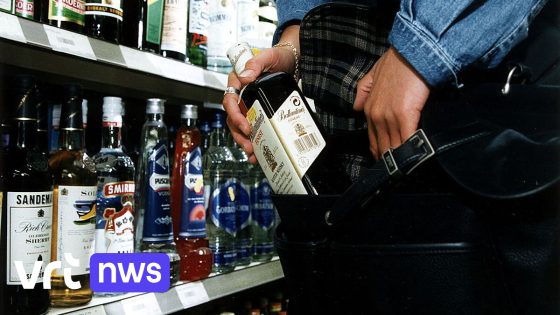A serious traffic accident on Dendermondsesteenweg in Ghent has raised concerns about road safety in the area. A 21-year-old driver, who had held his license for less than a year, caused significant damage early Sunday morning by crashing into five parked cars and damaging a house facade. This incident, reported on 2025-06-15 15:28:00, is the second major accident on the same street over the weekend.
- Young driver causes major crash Sunday morning
- Driver tested positive for drugs, not alcohol
- Five parked cars and house facade damaged
- Four people sustained minor injuries, hospitalized
- Police investigate reckless driving, suspend license
- Previous scooter accident also under investigation
Authorities confirmed that the young driver tested positive for drugs but negative for alcohol. Emergency services quickly arrived at the scene, treating four people with minor injuries. The driver is now under investigation for reckless driving and obstructing traffic. Earlier in the weekend, a separate accident involving a scooter and a car left a 37-year-old man seriously injured, highlighting ongoing risks on Dendermondsesteenweg.
What measures can be taken to prevent such dangerous incidents? And how can local authorities improve safety for both drivers and pedestrians? These questions are vital as investigations continue and the community seeks answers.
The recent crashes prompt reflection on the challenges young drivers face and the risks posed by impaired driving. Could more driver education or stricter penalties reduce such incidents? Key points to consider include:
- The impact of drug use behind the wheel on road safety
- The vulnerability of inexperienced drivers in busy urban areas
- The importance of rapid emergency response to limit injuries
- Potential improvements in traffic management on Dendermondsesteenweg
Moving forward, enhanced driver training and targeted traffic controls could help reduce accidents on Dendermondsesteenweg. How can the community work together to ensure safer streets for everyone? Vigilance and proactive measures remain essential.































